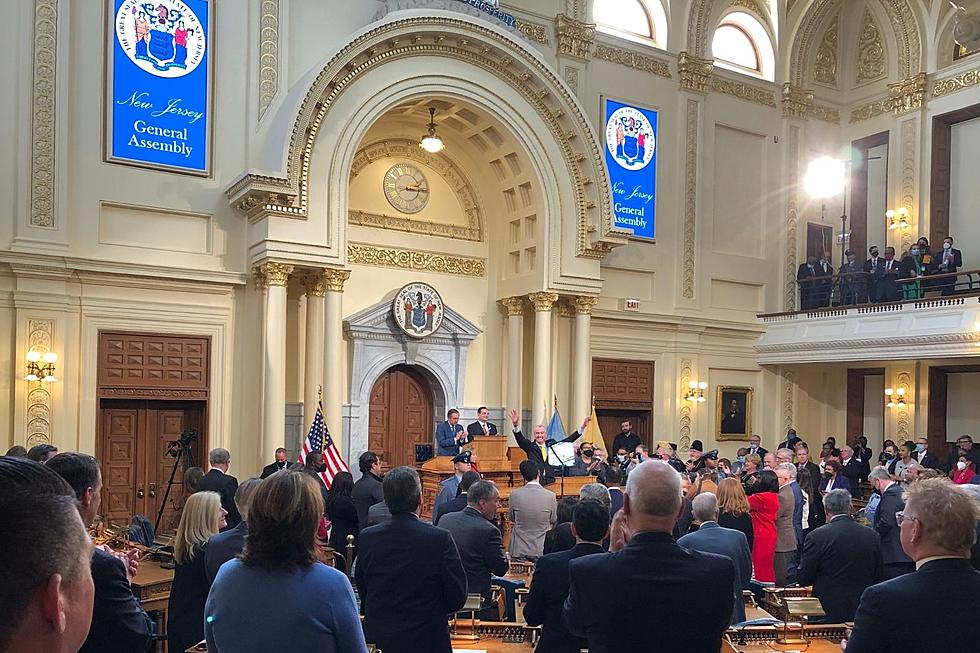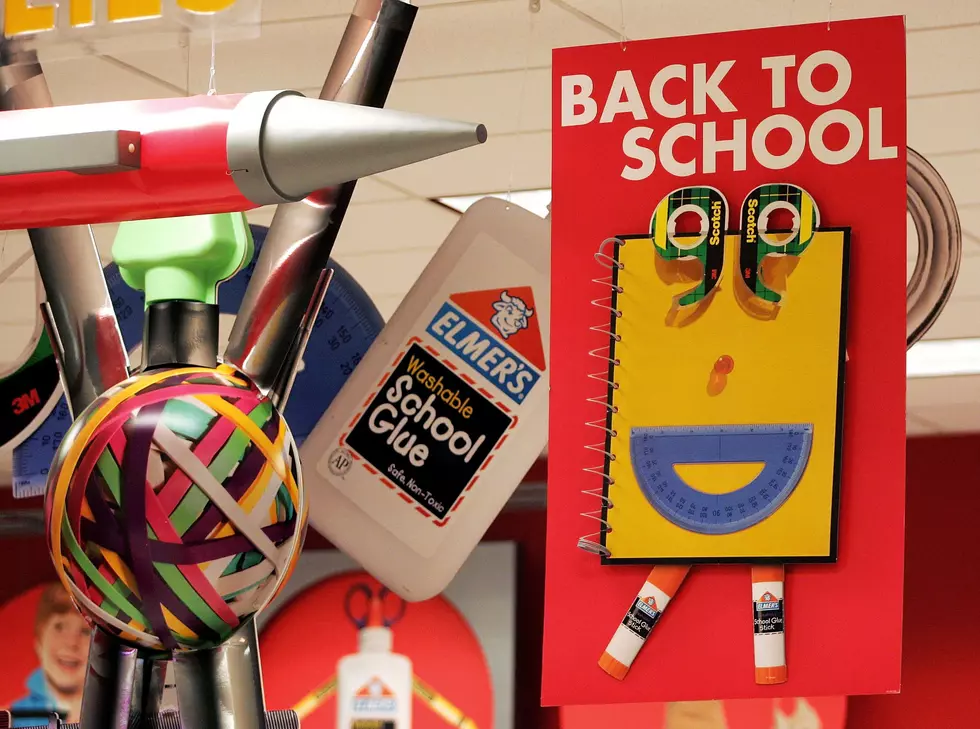
Murphy pitches fee holidays in nearly $49B state budget blueprint
TRENTON – With the state coffers awash in unexpected tax revenues, Gov. Phil Murphy is proposing a series of small fee waivers on top of the previously announced expansion of property tax rebates in the upcoming state budget.
The fee holidays amount to around $60 million, or 1.3% of the $4.6 billion by which this year’s revenues are now expected to exceed earlier forecasts. The spending on the ANCHOR tax rebates would be much bigger, an additional $554 million on top of the $340 million now spent on homestead benefits.
"A budget is not an end in and of itself. It’s a tool to achieving an end," Murphy said. "And this budget is built to help us make New Jersey a true 'State of Opportunity' for all willing to roll up their sleeves and work alongside us."
The waivers would give a small break to residents at a time of inflation not seen in generations. There would be no cost next fiscal year for renewing driver's licenses, for renewals of around 130,000 health professional licenses, for marriage licenses and for residents entering state parks.
"So it seems to me it's good advice in this next fiscal year to jump in a car, drive to a state park and marry a health care professional," Murphy joked.
Assemblyman Hal Wirths, R-Sussex, was unimpressed.
"The big news is we’re getting our driver’s licenses for free," Wirths said. "I didn’t look at mine yet. I’m hoping to hell I get my $11 discount. After $4 billion of taxes under this governor and 60 tax increases and fees, I’m getting $11 back.”
For what it’s worth, it actually costs $24 to renew a driver’s license.
The state now expects to collect $46.9 billion in taxes this year, rather than the $42.3 billion projected when the budget was adopted last June. It doesn't count on that surge continuing into the new budget, forecasting revenues will be up 0.7%, or $331 million, to $47.2 billion in fiscal 2023.
Sen. Declan O’Scanlon, R-Monmouth, said it’s easy to assemble a budget when revenues are almost $5 billion above expectations, the state borrowed $4 billion it didn’t need and the state still has $3 billion in federal aid to allocate.
“If you gave me $10 billion in my lap, I could give a budget address that would make me sound like the best governor not in the history of New Jersey but in the history of any state in the country," O'Scanlon said.
Senate Minority Leader Steve Oroho, R-Sussex, said programs are unveiled all the time but then rolled back unless they're in the constitution, suggesting the ANCHOR tax rebates might never reach their fully funded promise. Republicans advocate for a larger, faster approach: Refundable tax credits of $1,000 per family or $500 per individual on this spring’s tax returns.
“We want to give back the money right now, immediately, so it can’t be pickpocketed again," Oroho said.
With all the extra money coming in, Murphy wants to put another $1.3 billion into the 'debt defeasance and prevention fund' the state created in the current budget. Through that fund, the state retired more than $3 billion in debt principal and interest, saving more than $600 million, and allocated $1.2 billion to fund construction on a pay-as-you-go basis, avoiding taking on more debt.
Murphy now wants to use part of the money in that fund to restore Newark Penn Station.
Next year's spending plan of $48.9 billion actually exceeds next year's projected revenues by $1.7 billion. The difference is covered by using some of the $6.2 billion in surplus projected for the end of the current fiscal year.
State officials must still decide how to allocate about $3.1 billion of the state’s $6.2 billion from the American Rescue Plan.
Murphy is proposing to spend $305 million of that on affordable housing projects, which his administration says would allow it to complete all viable 100% affordable housing projects identified in Mount Laurel settlements. It would create over 3,300 new affordable housing units.
"The Affordable Housing Production Fund will provide real stability for communities," Murphy said. "It will ease the burden on municipalities. And it will likely short-circuit potential lawsuits by developers. But, most importantly, far more importantly, it will get working families into homes."
Murphy also wants to spend $53 million in ARP funds on one-time $500 payments to immigrants, including ones not legally in the country, who are ineligible for Social Security numbers but pay their taxes using an Individual Taxpayer Identification Number and didn’t get stimulus payments.
Those payments would be in addition to those being made through the Excluded New Jerseyans Fund, which is now estimated to cost around $60 million.
The state budget includes an additional $650 million toward formula aid for schools, bringing total spending by the state on that to $9.92 billion.
It marks the fifth step out of seven in the state’s return to the once-abandoned 2008 school funding formula, and it likely means that two-thirds of districts will see increases and one-third will see cuts. District-level details are due to be released Thursday.

The state plans to put $6.82 billion into the public workers’ pension funds, making it the second consecutive year in which the full amount recommended by actuaries is being put in, something that until the current budget hadn’t happened since 1997.
Michael Symons is the Statehouse bureau chief for New Jersey 101.5. You can reach him at michael.symons@townsquaremedia.com
Click here to contact an editor about feedback or a correction for this story.
2022 Seaside Heights Polar Bear Plunge photos
Where everyone knows your name: Friendliest bars in NJ
More From Beach Radio










